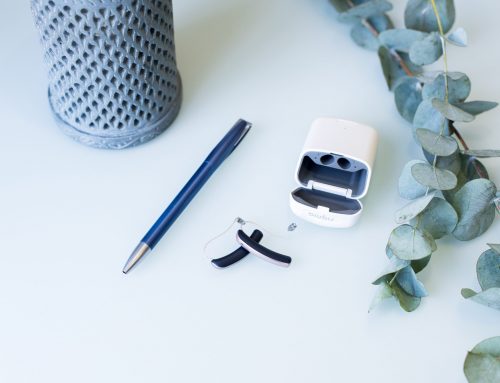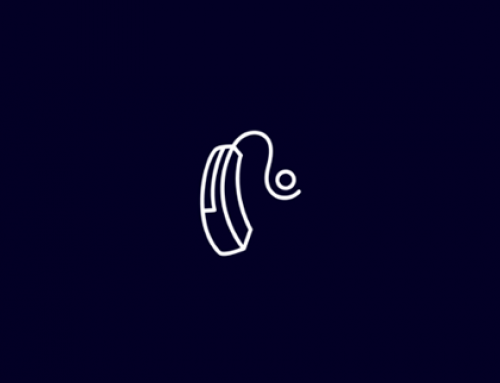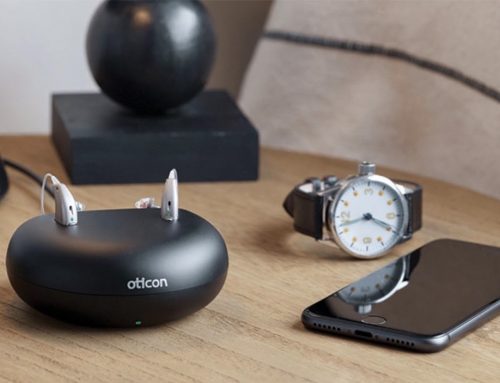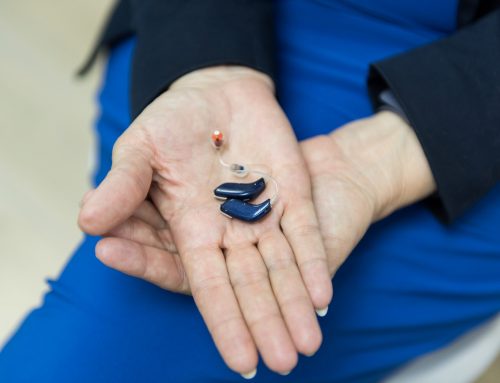I suspect my story will sound all too familiar to the Boomer generation, yet I know that no
generation is exempt from the scourge of hearing impairment. I write in the hope that my humble
story will resonate, and in some small way, inspire you to push forward towards a happy, fully
functional place in society.
Growing up during the rock ‘n role, heavy metal yada yada age definitely had it’s fun side, but by my
late thirties I was already noticing that here and there I would miss a word, especially in group
interaction. Stints in the military, with powerful rifles detonating 10cm from you ears, and exposure
to a variety of other heavy weapons also took their toll. At the time ear protection was a laughable
idea subject to open ridicule. Sound familiar?
Along came the middle years, gradual climb up the corporate ladder and growing family
responsibilities, but also the nagging loss of a word here and there. One day I noticed that the TV
was faulty and not as loud or clear as it used to be. Maybe the speaker was faulty. The new TV was
even worse. “They don’t make clear TVs like they used to”. Does this ring a bell? Notice how we
associate the words “hearing”, and “ringing” and “seeing” with understanding.
Nevertheless, life goes on regardless. I took the opportunity to learn to fly light aircraft, and the
need for good hearing immediately became apparent. Your safety, and the safety of other aircraft
are crucially dependent on regular verbal radio reports of your position, velocity and heading. Yes,
modern technology like the GPS have recently made matters much easier, but regular verbal
communication with the tower and other pilots remains a cornerstone of air safety. With the help of
good noise-cancelling headphones I was coping just fine. Without them was another issue.
One of our early human responses to hearing loss, I believe, is self denial. It might be the first real
evidence that we are aging, and it’s happening far too soon. Can’t be real. Sure, everyone misses a
word here and there. Our brains are pretty good at filling in small gaps, but then I realised I was
starting to miss potentially importance chunks of information. The brain, my brain anyway,
sometimes came up with the wrong interpretation. You realise this is happening when you get a
strange look from a colleague or friend, try to laugh it off, but gradually it became a bigger problem
for me. My work sometimes required in-depth verbal interaction with colleagues and business
partners. Fortunately, face-to-face I was still pretty competent because of subconscious lip reading
and other visual cues. But every so often, I realised, my response to a situation was inappropriate.
For the first time I felt a pang of fear. What if this gets worse? How will I function in society.
For me the coup de grâce was when I damaged both ears in a diving accident. The details are not
important, but the result was the sudden loss of 10dB to 20dB in both ears, especially in the higher
frequencies. I expected (hoped) the situation to return to normal. It never did. I was 50 years old.
So, my journey with audiologists and hearing instruments started. I asked the first audiologist I
consulted, an older gentleman, whether he could operate and repair my ears. He laughed and
bluntly told me he couldn’t help me. I could try hearing aids, but should try to develop my lip reading
skills and I could get a hearing aid. A hearing aid! No way! Those are for decrepit old people. The
very idea was anathema. My friends and colleagues would never accept me as an equal. My career was doomed. How could I fly a ‘plane with a contraption attached to my ear, or ride a motorcycle, or
just walk in the rain for that matter?
Yet, we do what we have to do. My first hearing instruments were fitted by a friendly lady at a
nearby medical complex. She had a diploma on the wall, and after going competently through the
checklists and hearing test, pronounced that I need a pair of brand X, model Y hearing aids. The price
was a shock at the time, but my wife and I agreed that these instruments were not a luxury. I
insisted on completely-in-canal (CIC) instruments for aesthetic and practical reasons.
The new hearing instruments were extremely intrusive and marginally helpful. My ears felt blocked
by an alien object which piped tinny sound through to me, often too loudly. I would cringe when the
dog barked, or when my wife spoke too loudly, which needless to say did not go down too well.
Nevertheless, the audiologist had assured me she would adjust the instruments to my satisfaction,
so I called and arranged another consultation. Unfortunately it soon became clear that she lacked
the ability to systematically adjust the many parameters of the system to achieve a satisfactory
result. After many, many sessions comprising random and apparently illogical and fruitless
adjustments, I was pleased to learn that she had been promoted and moved to another clinic. The
new audiologist was fresh from college, but far more logical, so gradually we got the system to a
usable level. Which meant that I could hear slightly better under some circumstances, but with a
trade-off of discomfort.
I met a lot of new audiologists during the next few years. There are apparently many promotions in
the audiology field. My hearing instruments were gradually upgraded as more powerful technology
emerged, but some fairly important problems remained. Using the telephone was extremely
frustrating, and often embarrassing. Yes, I tried various and expensive Bluetooth attachments, and
yes, they helped sometimes. It gradually became harder to understand speech on TV soundtracks.
Actors and actresses do not make an effort to enunciate and when they face away and you cannot
read their lips. A Bluetooth gadget helped but it was tricky to set up and not always handy.
So my hearing gradually deteriorated and technology gradually improved, but the holy grail of
legible speech and comfortable listening remained elusive, retreating out of reach. Around that time
I retired, unscathed, but decided to accept a consulting offer from a friend. The new place of work
was conveniently opposite the Sandton Mediclinic, and Sandton Hearing & Balance. My relationship
with the audiology profession improved markedly.
Ms. Hanekom (Tanya) and her team have been a trustworthy and dependable source of support and
advice for the past ten years. During that time my hearing deteriorated a little more, but with
competent testing and appropriate periodic upgrades of technology my quality of life has been
surprising good. In this regard I should share my conviction that my most recent technology upgrade
was a game changer for me. A big step change.
Over the years my hearing instrument models usually run for 3 to 5 years, a bit like a car. The old
ones are usually still functional but a little deteriorated after living in a human ear canal for several
years. The newer models promise marginal improvements, often at a slightly higher price, but also
greater reliability due to their newness. Reliability becomes important when you can’t function
socially without your aids. Once of the duties of a good audiologist is to keep abreast of technology, and advise appropriate upgrades, but over the years the steps had been worthwhile but modest,
until one mundane morning I received a call.
News was that Beltone have developed a new range, the top-of-the range model being an excellent
fit for my level of hearing impairment. The model carried a price tag commensurate with its top-of-
range status, and would not be imported routinely. They further required written guarantees before
importing, a tricky situation. My confidence in Sandton Hearing & Balance finally prevailed, and
order fed into the system. They are reported to be individually manufactured according to one’s
needs, and arrived about a month later.
Well, these Beltone Amaze 17 instruments have been a revelation! Initially they seemed too loud,
but I soon realised that I was hearing the new normal. Or my childhood old normal. Of course it’s not
simply about amplitude, but also about channelised signal processing, dynamic range, noise
cancelling and ceiling and many other things. Over the next few weeks my brain seemed to adapt to
the new normal, and started teasing out understanding from chunks of sound (phonemes?) that
were long forgotten. I was learning to hear again. The apparent loudness went away, as I realised
the instruments would protect me from excessively loud external events. The system includes an
invaluable App on my phone for easily adjusting volume, frequency response and noise cancelling,
like a graphic equaliser. It also, flawlessly, streams phone calls or music in stereo (or Dolby) to my
ears. For the first time in decades I’m listening to enjoying music and I’ve discovered the joys of
Spotify. All switching is seamless and smooth, no crackling or popping, or hung calls. It just all works.
Well. I also splashed out for the TV streamer gadget, and it too works exceptionally well with great
audio and above average range from the TV.
What are the downsides, if any? None really, unless one gets pedantic. The #10 batteries last 3 days,
when the older tech instruments lasted 6 days. A little clear plastic Bluetooth loop sticks out of the
instrument. Not particularly noticeable, but my kids say it looks like I’m ahead of the next wave of
Apple Airpods. The TV streamer can’t be switched off, only unplugged. Ordinarily not a problem, but
when it’s on it blocks WiFi in the near vicinity to some extent. Most people don’t browse the ‘net
and watch TV seriously at the same time, but there may be others in the room.
This new technology, together with careful, competent setup by Sandton Hearing & Balance, has
changed my life. What comes next?
Written by Eric James Stockenstrom
Kyalami, South Africa
April, 2020
Shared with permission
Make an appointment today by booking online here, visit www.sandtonhearing.co.za or call 011 463 4639
Take an online hearing screening test here, it’s free… you just need 3 minutes and some earphones.





Leave A Comment